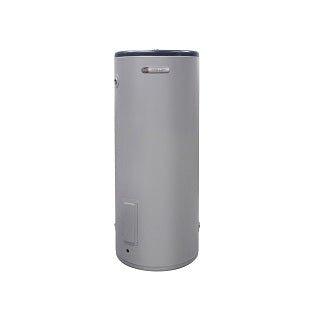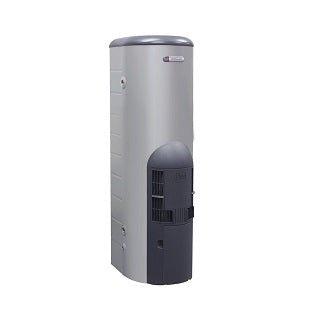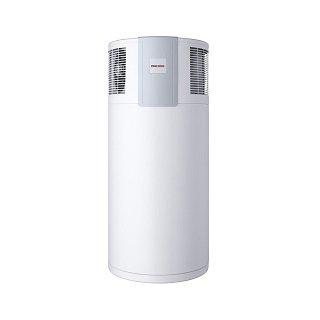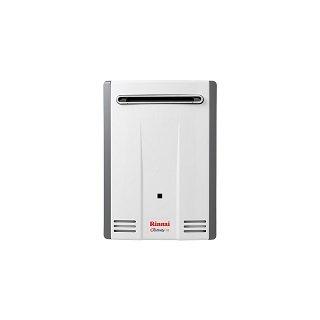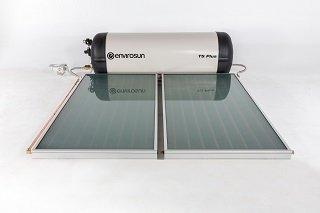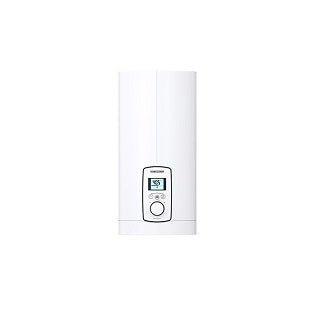Hot Water System Repairs and Servicing from $199
Hot Water System Repair: Expert Water Heater Fault Finding and Servicing Guide
Facing issues with your water heater? Effective water heater fault finding repairs and servicing, along with comprehensive hot water service, are key to a reliable hot water supply. Our guide dives straight into troubleshooting tips, repair instructions, and advice on when to seek professional servicing for your water heater. Whether you’re a homeowner looking to resolve an immediate problem or interested in routine upkeep, you’ll find practical steps to maintain your water heater’s performance within.
-
Common water heater issues include insufficient hot water, fluctuating temperatures, leaks, and strange noises, with causes such as thermostat malfunctions, sediment buildup, and corrosion.
-
Many minor water heater problems can be addressed with DIY troubleshooting like checking power supply, resetting thermostats, and inspecting for leaks, but recurring or complex issues should be resolved by professionals.
-
Regular preventative maintenance extends the life of your water heater, and understanding when to upgrade the system is essential for efficiency, especially considering factors like age, frequent repairs, and energy usage.
Understanding Hot Water Systems
Hot water systems are an indispensable part of our daily lives, providing the comfort and convenience of hot water for bathing, cooking, cleaning, and more. Understanding the different types of hot water systems available can help you choose the best one for your home, ensuring efficiency and reliability.
Identifying Common Water Heater Faults
Whether you're using a gas or electric hot water system, understanding potential issues is the first step towards reliable hot water supply. From insufficient hot water to strange noises, several problems can crop up with hot water heaters. And while each type of hot water heater has its specific set of potential issues, some common problems include:
-
Insufficient hot water
-
No hot water
-
Leaking tank
-
Strange noises
-
Discolored or smelly water
By being aware of these common issues, you can troubleshoot and address them promptly to ensure a continuous supply of hot water.
This section elaborates on common faults with gas hot water systems, including those related to the storage hot water system and the hot water unit:
-
Insufficient hot water
-
Fluctuating temperatures
-
Leaks
-
Strange noises
With this information at your disposal, you can promptly detect issues with your right hot water system, which aids in implementing effective repairs.
Insufficient Hot Water
Imagine being in the middle of a relaxing hot shower when suddenly, the water turns cold. Not a pleasant scenario, right? This could be due to various factors, such as:
-
a mismatch in capacity
-
incorrect thermostat settings
-
sediment buildup
-
ineffective heating elements
Electric hot water systems, which are prevalent in many homes, can also face issues like insufficient capacity and inefficient heating elements.
Some common issues with water heaters include:
-
Insufficient capacity for the demand of hot water in your home, leading to a shortage
-
Thermostat settings that are too low, preventing water from heating to the desired temperature
-
Sediment buildup in the water heater tank, decreasing the efficiency of hot water output
-
Malfunctioning heating element, causing a drop in the water heater’s ability to supply adequate hot water.
Fluctuating Temperature
Fluctuating water temperature is another common issue faced by homeowners. It can be quite disconcerting to experience sudden temperature changes while enjoying a hot shower. This may result from:
-
Faulty temperature regulators
-
Malfunctioning thermostats
-
Damaged mixing valves
-
Mineral deposits insulating heating elements
A malfunctioning storage tank can also contribute to fluctuating temperatures, as it may not maintain the desired water temperature efficiently.
Some common causes of inconsistent water heating include:
-
Faulty temperature regulators that do not stop heating once a set temperature is reached
-
Damaged dip tube that allows cold water to enter the hot water supply
-
Mineral deposits insulating the heating elements and preventing effective heating of water
These issues can result in changing water temperatures and inconsistent heating.
Leaks
Leaks in your hot water system can be caused by:
-
Corrosion
-
Loose connections
-
Malfunctioning temperature and pressure relief valves
-
Cracks in the tank
Corrosion of the water heater tank over time can lead to leaks as the metal weakens and develops holes. Loose or worn-out connections at the cold water inlet and hot water outlet can lead to leaks that might be resolved by tightening or replacing the fittings.
Leaks around the base of the water heater may indicate a serious internal problem, such as a crack in the tank that could require replacement.
Strange Noises
Ever heard eerie noises coming from your water heater? Don't worry; it's not haunted. Strange noises can be caused by:
-
Sediment buildup
-
High water pressure
-
Expanding and contracting pipes
-
Partially opened valves
Sediment buildup can cause popping or rumbling noises as steam bubbles are generated and escape through the sediment layer. High water pressure could cause knocking sounds in the system, referred to as water hammer, as water flows or stops suddenly with excessive force.
Other noises like whistling, hissing, and humming can be caused by partially opened valves, sediment covering heating elements, or loose elements vibrating in the water.
DIY Troubleshooting Tips for Water Heater Repairs
Now that we’ve identified the common faults, let’s dive into some DIY troubleshooting tips. While some issues require professional attention, there are a few simple steps you can take to fix minor problems or at least understand what’s wrong with your hot water system.
This segment provides guidance on checking the power supply, resetting the thermostat, and conducting leak inspections. Following these suggestions can enhance your water heater’s performance, prolong its lifespan, and prevent unplanned hot water emergencies. For more complex issues, seeking professional hot water services can ensure proper diagnosis and repair, preventing further damage.
Checking the Power Supply
If your water heater isn't functioning, the first thing you should check is its power supply. Before doing any inspections, verify that the circuit breaker for the water heater is on and has not tripped.
Use a noncontact voltage detector to check for power in the water heater's circuit before attempting any repairs or detailed inspections. Conduct a visual check of the power cables for any signs of wear or damage and make sure the water heater's own switch is set to ‘on'.
Remember, a circuit breaker that trips frequently may indicate a more serious issue with the water heater, necessitating the assistance of an electrician.
Resetting the Thermostat
Is your water heater not heating adequately? The thermostat might be the culprit. Before attempting to reset the thermostat, ensure the water heater is disconnected from the power supply by unplugging it or turning it off at the breaker box.
To reset the thermostat, press the reset button located just above the upper thermostat until you hear a clicking sound. After the thermostat has been reset, reconnect the heater to the power supply. This simple step could fix the issue and get your hot water flowing again.
Inspecting for Leaks and Drips
Leaks are a common problem with water heaters and can lead to significant water wastage if not addressed promptly. Conduct a thorough visual inspection for signs of water leakage around the water heater.
Look for corrosion or mineral buildup that may signal a slow leak. If you find leaks emerging from the top or side, attempt to tighten them if loose using a pipe wrench. Remember, leaks from the side may indicate a malfunctioning temperature pressure relief valve.
In case you notice leaks at the bottom, particularly around the drain valve, replace or tighten the valve as necessary.
Professional Water Heater Repair Services
While some issues can be resolved with DIY fixes, certain problems call for professional intervention. From safety considerations to ensuring compliance with local building codes, professional water heater repair services offer a multitude of benefits. In some cases, a hot water system replacement may be necessary to upgrade to a more efficient model, reducing energy costs and improving performance.
This segment explores the advantages of professional repairs as well as guidelines to select the appropriate service provider. Be it an urgent hot water issue or routine maintenance, professional services guarantee efficient performance and durability of your system.
Benefits of Professional Repairs
Professional repair services offer the following benefits for water heater issues:
-
Quick and efficient repairs
-
More effective repairs than DIY solutions
-
Early identification of potential issues
-
Ensuring water heater efficiency and longevity
-
Saving you trouble in the long run
Not only do technicians ensure that water heater repairs meet safety standards and building codes, safeguarding homeowners from potential legal issues, but the regular service leads to increased familiarity with the unit, enabling quicker and more comprehensive repairs.
Choosing the Right Service Provider
Choosing the right service provider for your hot water system repair, hot water system repairs, or hot water system installation is crucial. A professional water heater repair company should be properly licensed, carry adequate insurance, and ideally be a member of recognized plumbing and HVAC associations.
Check the company's reputation through recommendations from personal contacts and online reviews from reputable platforms. The longevity of a company's presence in the industry and their track record with customer service are indicative of their capability to offer satisfactory services and resolve complaints.
Preventative Maintenance for Your Water Heater
To enjoy consistent hot water and extend the lifespan of your hot water system, preventative hot water system maintenance is key. Regular maintenance can help you avoid major repairs and replacements, keeping your hot water flowing without interruptions.
This segment stresses the importance of preventative maintenance, inclusive of annual inspections, draining and flushing procedures, and anode rod replacement. These measures contribute to extending the lifespan and reliability of your water heater.
Annual Inspections
Regular annual inspections by a professional can prevent minor issues from escalating into major problems. Scheduling annual professional inspections can identify potential issues early on, ensuring water heater efficiency and longevity.
These inspections allow technicians to address small technical issues before they evolve into significant problems. From inspecting the water heater's anode rod to thorough examination of plumbing fixtures, regular checks can help maintain the system's overall health.
Draining and Flushing
Draining and flushing the water heater is an essential maintenance task that enhances the efficiency of the system. By preventing sediment buildup, you can ensure that your water heater operates at its best.
Before you start draining and flushing, remember to shut off the power supply and depressurize the tank. Flushing involves attaching a drain hose to the tank's bottom and back flushing with cold water until the water runs clear. Always remember to place the end of the drain hose away from concrete or grass to avoid staining or scorching.
Replacing the Anode Rod
The anode rod in your water heater plays a vital role in preventing corrosion of the water heater tank. Over time, the rod degrades, protecting the tank but requires replacement to continue its protective role.
The anode rod should typically be replaced every 3 to 4 years, but this varies with water conditions and usage. Replacement is necessary when 6 inches of the steel core wire is visible or the rod is mostly core wire, with aluminum rods requiring additional attention as they disintegrate.
Upgrading Your Water Heater: When It's Time for a New System
While regular maintenance can extend the lifespan of your hot water system, there comes a time when it's more feasible to upgrade to a new system. But how do you know when it's time to say goodbye to your old water heater?
This section outlines the indicators to watch for when contemplating an upgrade, such as the system's age, frequent repair needs, and energy efficiency. Comprehending these factors enables you to make a well-informed decision and select a hot water system that fulfills your requirements.
Age of the System
Water heaters, like any other appliance, have a certain lifespan. The average lifespan of a hot water tank is about 7 to 15 years, depending on the type. Tank-less systems potentially last a few years longer than conventional hot water tanks, and copper tanks can last over 25 years.
If your water heater is nearing or has surpassed its typical lifespan, it might be time to consider an upgrade to gas water heaters. Aging water heaters tend to be less efficient and require more frequent repairs, leading to higher running costs.
Frequent Repairs
Another sign that it’s time to upgrade your water heater is the frequency of repairs. If you find yourself calling a technician for hot water repairs too often, it might be more cost-effective to replace the unit altogether.
Frequent repairs may indicate underlying issues that suggest the water heater is nearing the end of its functional lifespan. Instead of pouring money into constant repairs, investing in a new, more efficient model could save you more in the long run.
Upgrading to solar hot water systems can provide significant energy savings and reduce your household's carbon footprint, making it a cost-effective and environmentally friendly option.
Energy efficiency is another crucial factor to consider when deciding whether to upgrade your hot water system. Upgrading to a more energy-efficient hot water system, such as a solar hot water system, electric hot water systems, or heat pump water heaters, can reduce energy and water usage, leading to significant long-term cost savings on utility bills. Moreover, a more energy-efficient water heater also lowers the environmental impact by reducing the carbon footprint.
Rising energy bills can be a sign that the water heater is becoming less energy-efficient and may require an upgrade. While the initial investment in a more efficient water heating system can be high, the energy savings achieved over time make it a worthwhile investment.
Throughout this guide, we have explored the common faults in hot water systems, DIY troubleshooting tips, the importance of professional repairs, preventative maintenance, and the signs to consider when thinking of an upgrade. The knowledge you’ve gained will help you understand, identify, and manage common water heater faults, ensuring a steady flow of hot water in your home.
Remember, regular maintenance and timely repairs can extend the lifespan of your hot water system and improve its efficiency. However, when the time comes, don’t hesitate to upgrade to a new, more efficient system. After all, nothing beats a hot, relaxing shower at the end of a long day.
Is it worth it to repair a hot water heater?
If the repair cost is 50% or more of the replacement, then it's not worth it to repair the hot water heater.
How often should water heater be serviced?
You should service your water heater once every 12 months for domestic hot water heaters and annually for commercial hot water heaters. It is recommended to consult a local professional to determine if more regular servicing is necessary.
How do you diagnose a water heater problem?
To diagnose a water heater problem, first, check the thermostat and pilot light. If you have an electric water heater, try restarting it and check the breaker box as well. Then, test the thermostat and heating element for voltage and Ohms.
What are the four common faults in hot water system?
Make sure to address issues such as no hot water, leaking, strange noises, and inconsistent temperature in your hot water system. Consulting a licensed professional and doing regular maintenance can help prevent these faults.
What is usually the most common water heater problem?
The most common water heater problem is water leaks. These can lead to damage and should be addressed promptly.






